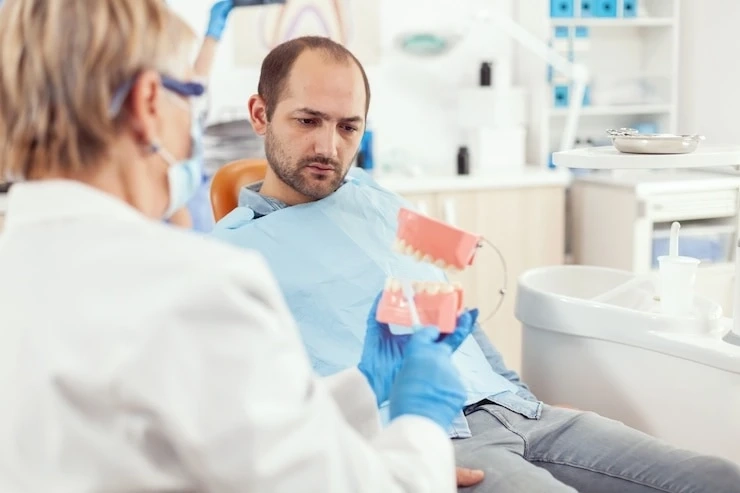Wisdom teeth extraction is a common dental procedure, especially for adults who may experience discomfort, swelling, or complications from their third molars. These are the last set of molars that typically emerge between 17 and 25. While some wisdom teeth come in without issue, many adults need them removed to prevent problems such as overcrowding, infection, or impaction. If you're an adult preparing for wisdom teeth removal Green, it's natural to have questions about the process, recovery, and potential risks involved.
Here are key insights on wisdom teeth extraction before, during, and after.
Pre-Extraction: Consultation and Preparation
Before undergoing wisdom teeth extraction, you’ll have an initial consultation with your dentist or oral surgeon. This visit typically includes a thorough examination of your mouth and an X-ray to assess the positioning and health of your wisdom teeth. Depending on your situation, your dentist will discuss whether you need to remove all four teeth or just one or two. They’ll also discuss the anesthesia options available to ensure you're as comfortable as possible during the procedure.
If your wisdom teeth are impacted (meaning they haven’t fully emerged or are growing in at an angle), your oral surgeon might recommend general anesthesia. Otherwise, local anesthesia can numb the area to ensure you feel no pain. You’ll also be instructed on the pre-surgery steps, such as fasting if you're having general anesthesia and arranging for someone to drive you home afterward.
The Procedure: What Happens During Extraction
On the day of the surgery, you’ll be given anesthesia to keep you relaxed and pain-free. The procedure generally takes anywhere from 45 minutes to an hour, depending on the complexity of the extractions. Local anesthesia might be sufficient for less complicated extractions, allowing you to remain awake but comfortable. In cases where the teeth are impacted or require more invasive surgery, general anesthesia may be administered, meaning you'll be asleep throughout the procedure.
During the surgery, the oral surgeon will carefully remove the wisdom teeth. If the teeth are impacted, the surgeon may need to make small incisions in the gums or even remove bone to access the tooth. While the procedure is being carried out, you should not feel any pain, though you may feel some pressure or tugging sensations as the surgeon works.
Once the teeth are removed, the incisions in your gums may be stitched up, and gauze will be placed in your mouth to control bleeding. The stitches used are often dissolvable, so there’s no need to return to the office to have them removed.
After the Procedure: Recovery and Care
After your wisdom teeth extraction, you’ll spend some time in a recovery room until the anesthesia wears off. You may feel groggy or have mild discomfort as the anesthesia wears off. Pain medication and ice packs are commonly used to reduce swelling and manage pain. It's normal to experience some swelling and bruising around your cheeks, jaw, and neck, which typically peaks within 48 hours and gradually subsides over the next few days.
Your dentist in Green or surgeon will provide post-operative care instructions, which usually include:
- Taking prescribed pain medications or over-the-counter pain relievers
- Applying ice packs to reduce swelling
- Eating soft foods and avoiding chewing on the affected side of your mouth
- Gently rinse with salt water to promote healing and avoid infection
Most people can resume their normal activities within 3 to 4 days. Still, it’s essential to avoid strenuous activities or any actions that might disrupt the healing process, such as smoking or using a straw, for about a week.
Conclusion
While the thought of wisdom teeth extraction may cause anxiety for some, understanding the procedure and recovery process can help reduce fears and set realistic expectations. With proper preparation, anesthesia, and aftercare, most adults recover smoothly from the procedure and enjoy the benefits of improved oral health. If you’re facing wisdom teeth extraction, consult your dentist or oral surgeon to discuss your options and make the process as comfortable as possible.



